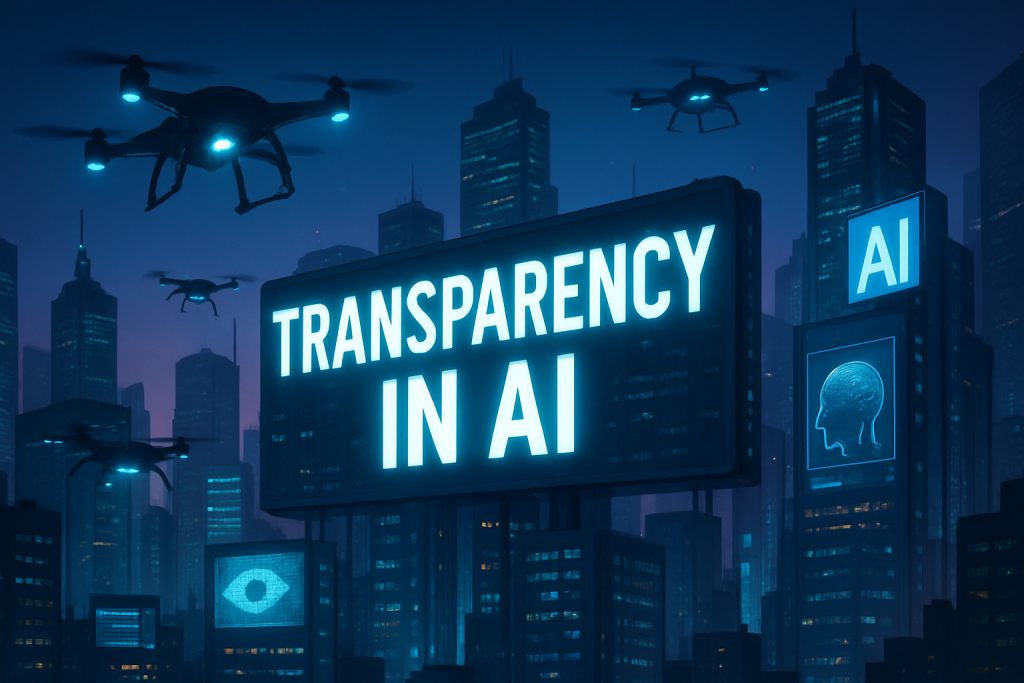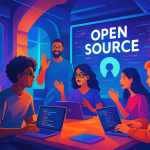The year is 2025. Flying cars, still a pipe dream. Robot butlers, mostly just Roombas with delusions of grandeur. But AI? AI is everywhere, humming in the background of our lives, making decisions we barely notice, and occasionally making headlines that send shivers down our spines. Case in point: California just dropped a regulatory bombshell on the AI world.
On September 29th, Governor Gavin Newsom signed the Transparency in Frontier Artificial Intelligence Act into law, a move that could reshape the entire landscape of AI development. Authored by State Senator Scott Wiener, this isn’t some minor tweak to existing policy. This is a full-throated declaration that California intends to keep a very close eye on the AI giants operating within its borders.
Think of it as California, the state that gave us Silicon Valley, deciding it’s time to put some guardrails on the very technology it helped unleash. It’s like Tony Stark finally realizing he needs to be more responsible with his Iron Man suit.
So, what exactly does this law do? In essence, it mandates that major AI developers operating in California disclose their safety protocols and report any safety incidents associated with their systems. That’s right, no more keeping potential AI mishaps under wraps. Sunlight, as they say, is the best disinfectant.
But why now? What led to this sudden burst of regulatory activity? To understand that, we need to rewind a bit.
The road to AI regulation has been paved with both promise and peril. We’ve seen the incredible potential of AI in fields like medicine, climate research, and even art (remember that AI-generated opera that won a Grammy?). But we’ve also witnessed the darker side: AI-powered misinformation campaigns, biased algorithms perpetuating societal inequalities, and the ever-present fear of autonomous systems spiraling out of control.
The truth is, the AI industry has largely operated in a regulatory Wild West. Companies have been racing to develop ever-more-powerful AI models, often with little oversight or accountability. This has led to a growing chorus of concern from ethicists, policymakers, and even some within the AI community itself. They argue that the potential risks of unchecked AI development far outweigh the potential benefits.
California, as the epicenter of the tech world, has been feeling this tension acutely. The state has a long history of being both a champion of innovation and a protector of its citizens. This new law is an attempt to strike that delicate balance.
Now, let’s dive into the nitty-gritty of the law itself. What constitutes a “major AI developer”? While the specifics are still being ironed out, it’s safe to assume that this law will primarily target companies developing what are known as “frontier AI” systems. These are the most advanced, cutting-edge AI models- the ones capable of performing complex tasks, learning from vast amounts of data, and even exhibiting some degree of “general intelligence.” Think of companies like DeepMind, OpenAI, and perhaps even some of the larger tech companies like Google and Meta.
The disclosure requirements are also significant. Companies will need to reveal details about their safety protocols, including how they are testing their AI systems for potential risks, how they are mitigating bias, and how they are ensuring that their AI models are aligned with human values. They’ll also need to report any safety incidents, such as AI systems making harmful or discriminatory decisions, or even exhibiting unexpected and potentially dangerous behavior.
Of course, this law isn’t without its critics. Some argue that it will stifle innovation and drive AI companies out of California. They claim that the regulatory burden will be too high, and that companies will simply relocate to states with more lax laws. Others worry about the potential for federal preemption. As Governor Newsom himself acknowledged in his signing statement, there’s a real possibility that the federal government could step in and override state laws in this area. This could lead to a confusing patchwork of regulations across the country, making it difficult for AI companies to operate effectively.
But supporters of the law argue that these concerns are overblown. They point out that California has a long history of setting the standard for tech regulation, and that other states often follow its lead. They also argue that transparency and accountability are essential for building public trust in AI, and that this will ultimately benefit the industry in the long run.
The financial implications of this law are also worth considering. AI development is an incredibly expensive endeavor. The cost of training these massive AI models can run into the millions, or even billions, of dollars. Adding regulatory compliance to the mix will only increase those costs. This could put smaller AI startups at a disadvantage, making it harder for them to compete with the larger, more established players. On the other hand, it could also create new opportunities for companies that specialize in AI safety and security.
Beyond the immediate financial impact, this law raises some deeper philosophical and ethical questions. What does it mean to hold an AI system accountable? Can we truly ensure that AI is aligned with human values? And what happens when AI makes decisions that have profound consequences for human lives? These are questions that we, as a society, are only just beginning to grapple with.
This isn’t just about California; it’s about the future of AI regulation worldwide. Will other states and countries follow California’s lead? Will we see a global race to regulate AI, or will we continue to muddle along with a patchwork of conflicting laws? The answers to these questions will shape the future of AI and its impact on humanity.
One thing is certain: the signing of the Transparency in Frontier Artificial Intelligence Act is a watershed moment. It signals a growing recognition that AI is not just another technology- it’s a force that has the potential to transform our world in profound ways. And with great power, as Spider-Man’s Uncle Ben famously said, comes great responsibility. California, it seems, is ready to shoulder that responsibility.
Discover more from Just Buzz
Subscribe to get the latest posts sent to your email.


